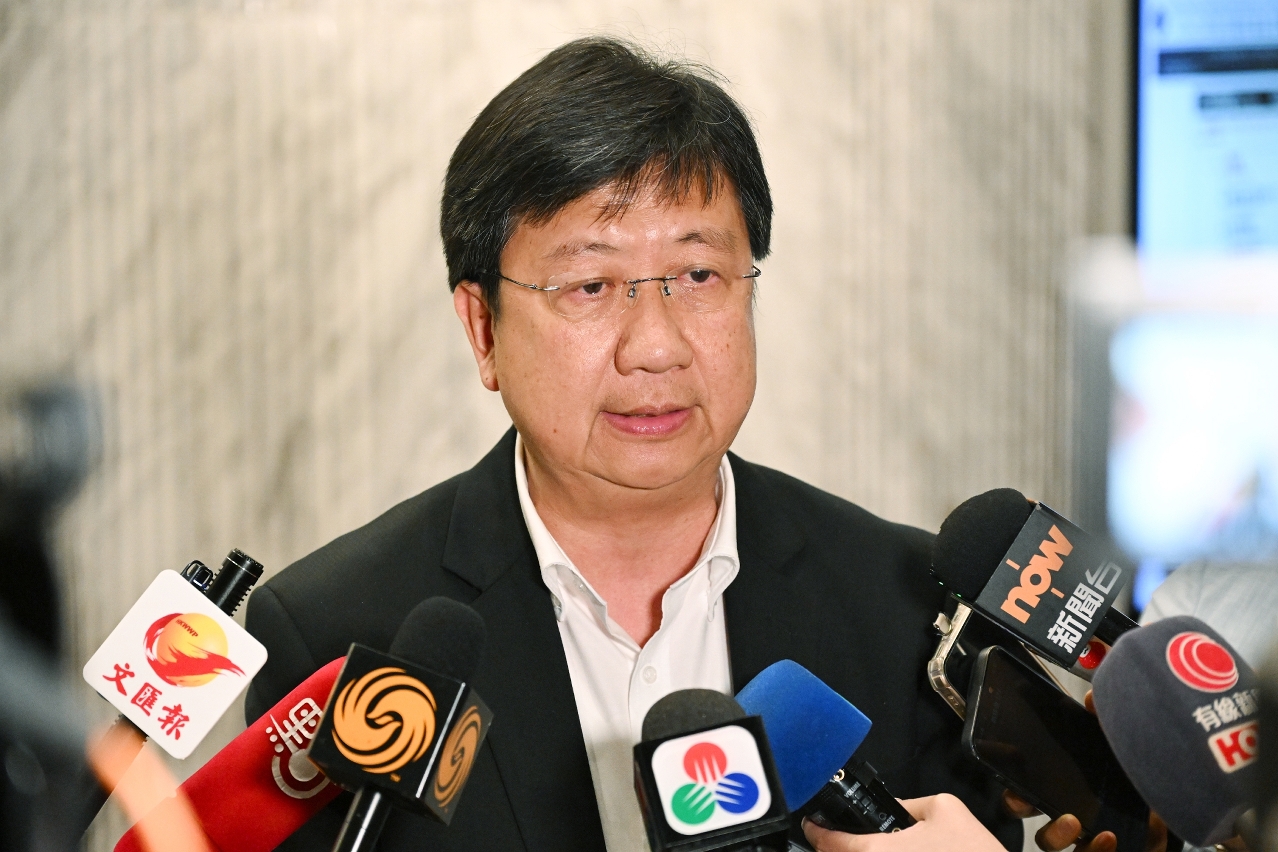 The Secretary for Transport and Public Works, Mr Tam Vai Man, speaks to reporters.
The Secretary for Transport and Public Works, Mr Tam Vai Man, speaks to reporters.
Improvements in the conditions of Macao’s old districts and in Macao people’s quality of life is an issue close to the heart of the Director of the Hong Kong and Macao Work Office of the Central Committee of the Communist Party of China and Director of the State Council’s Hong Kong and Macao Affairs Office, Mr Xia Baolong.
This is according to the Secretary for Transport and Public Works, Mr Tam Vai Man, who today accompanied Mr Xia on his inspection tour of Macao’s maritime area and of several sites designated for infrastructure development.
Mr Xia was briefed about the development of reclaimed land in the New Urban Area, as well as the Macao Special Administrative Region (MSAR) Government’s plans for two major projects: the international integrated tourism and cultural zone; and the Macao science and technology R&D industrial park, Mr Tam told reporters after the tour.
Mr Tam added that Mr Xia was interested in the overall development of Macao and urged the MSAR Government to do a good job in planning the use of reclaimed land in the New Urban Area. Mr Xia also hopes that the Government will improve the quality of life of residents through measures such as urban renewal.
Mr Tam also mentioned that Mr Xia fully affirmed the Government’s work in the field of transport and public works, and provided valuable opinions. Mr Tam said his team would conscientiously implement the spirit of President Xi Jinping’s important speeches given during his inspection of Macao last December, and would actively promote appropriate economic diversification, further improve various urban construction projects, and enhance the sense of happiness for Macao residents.


